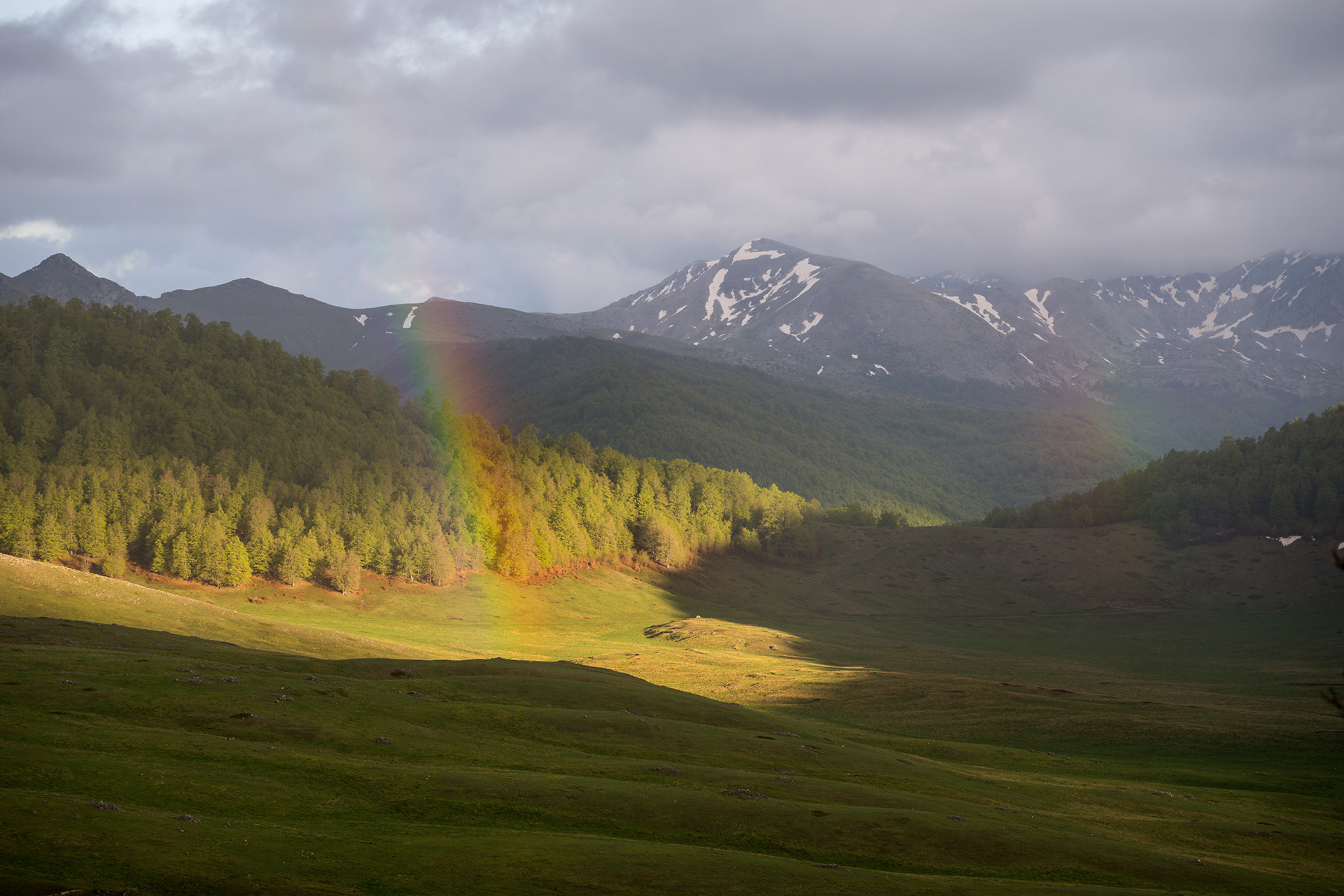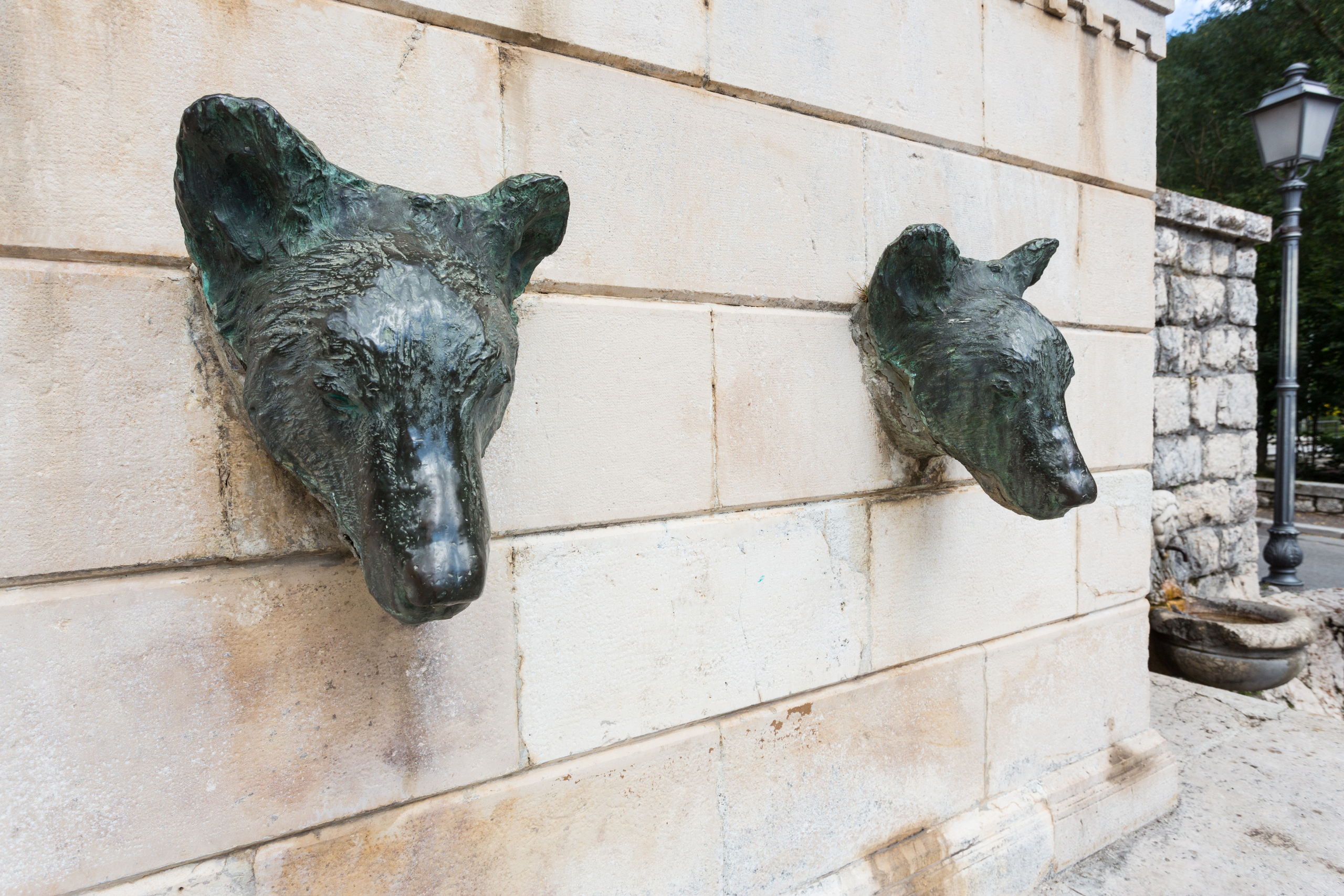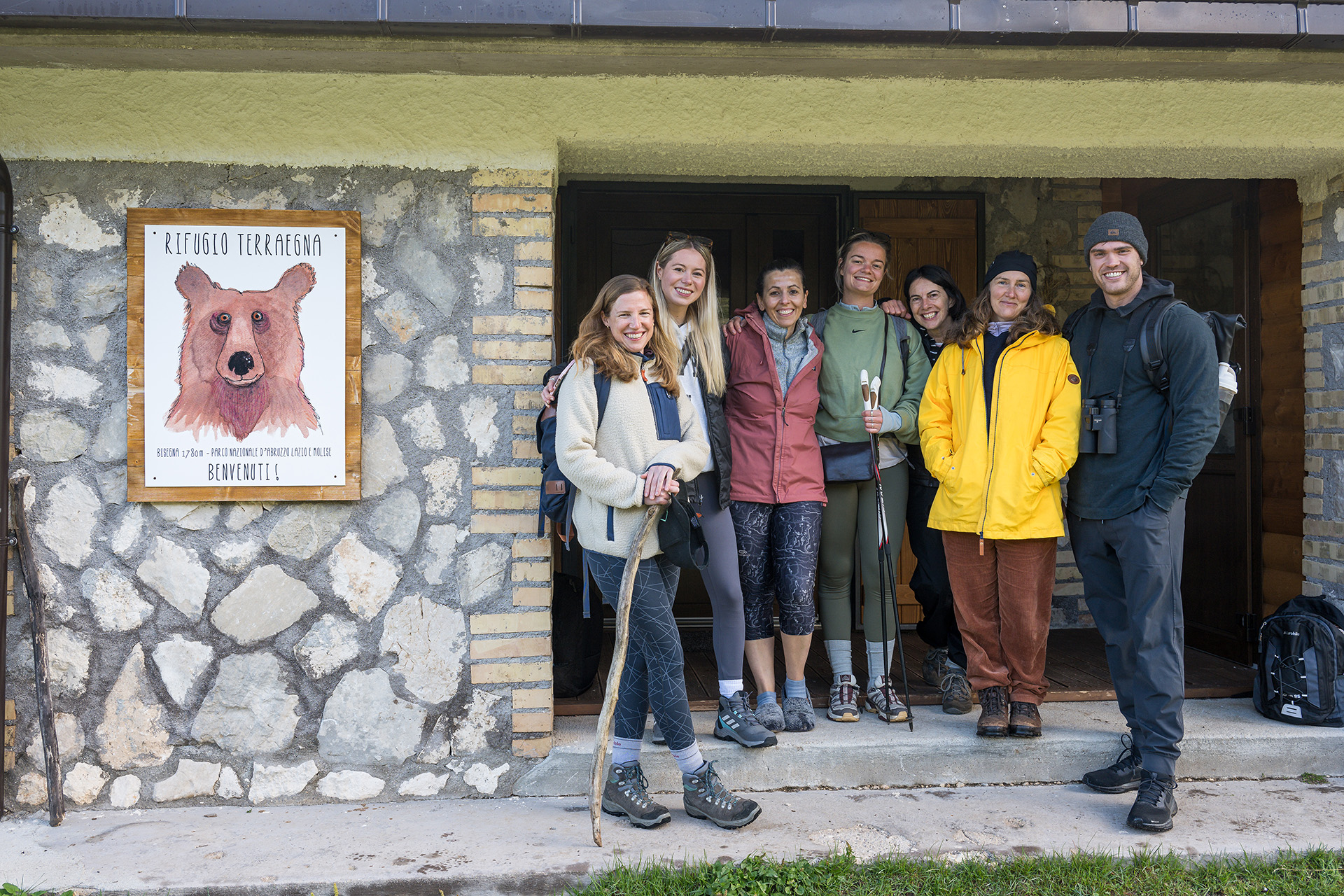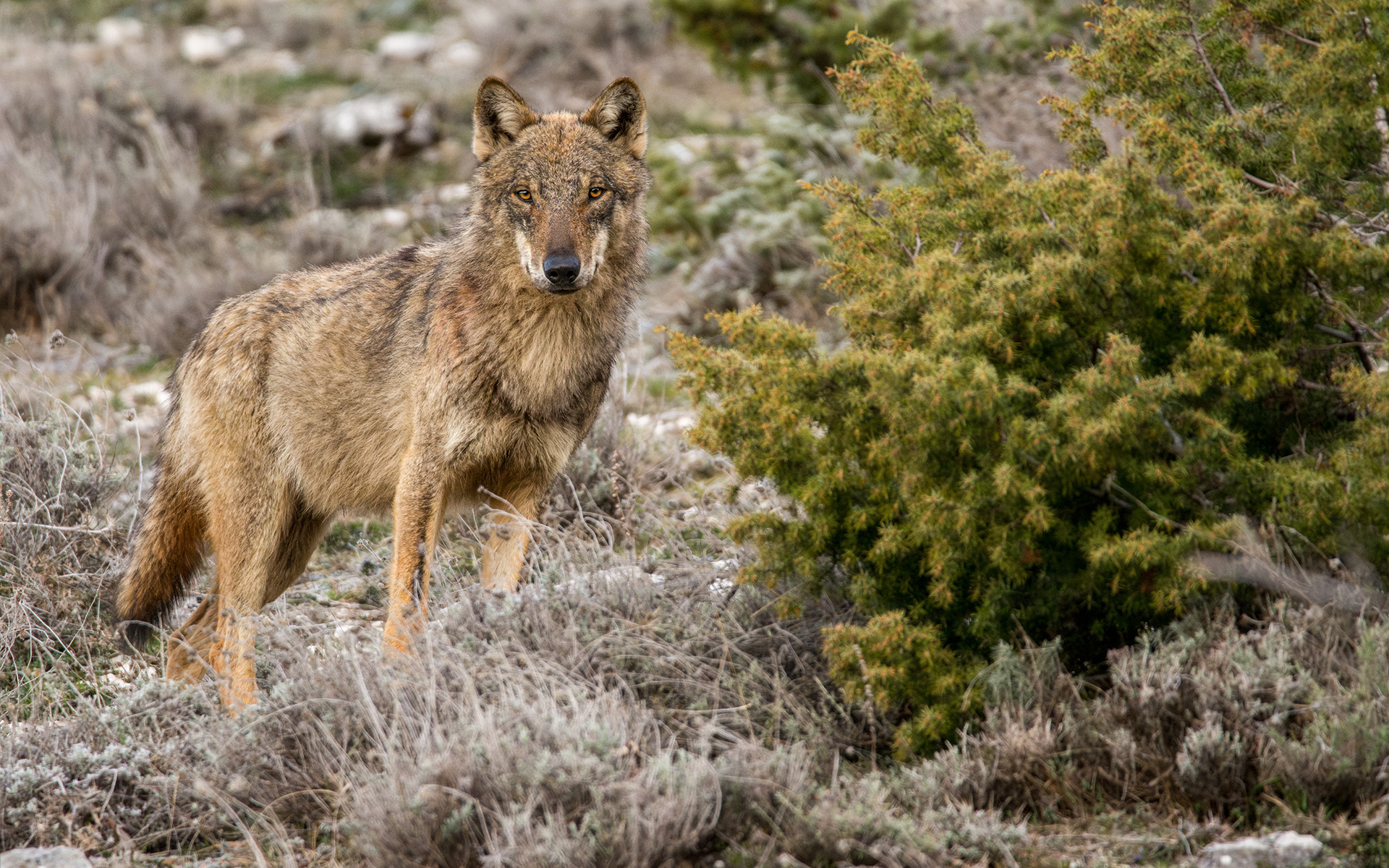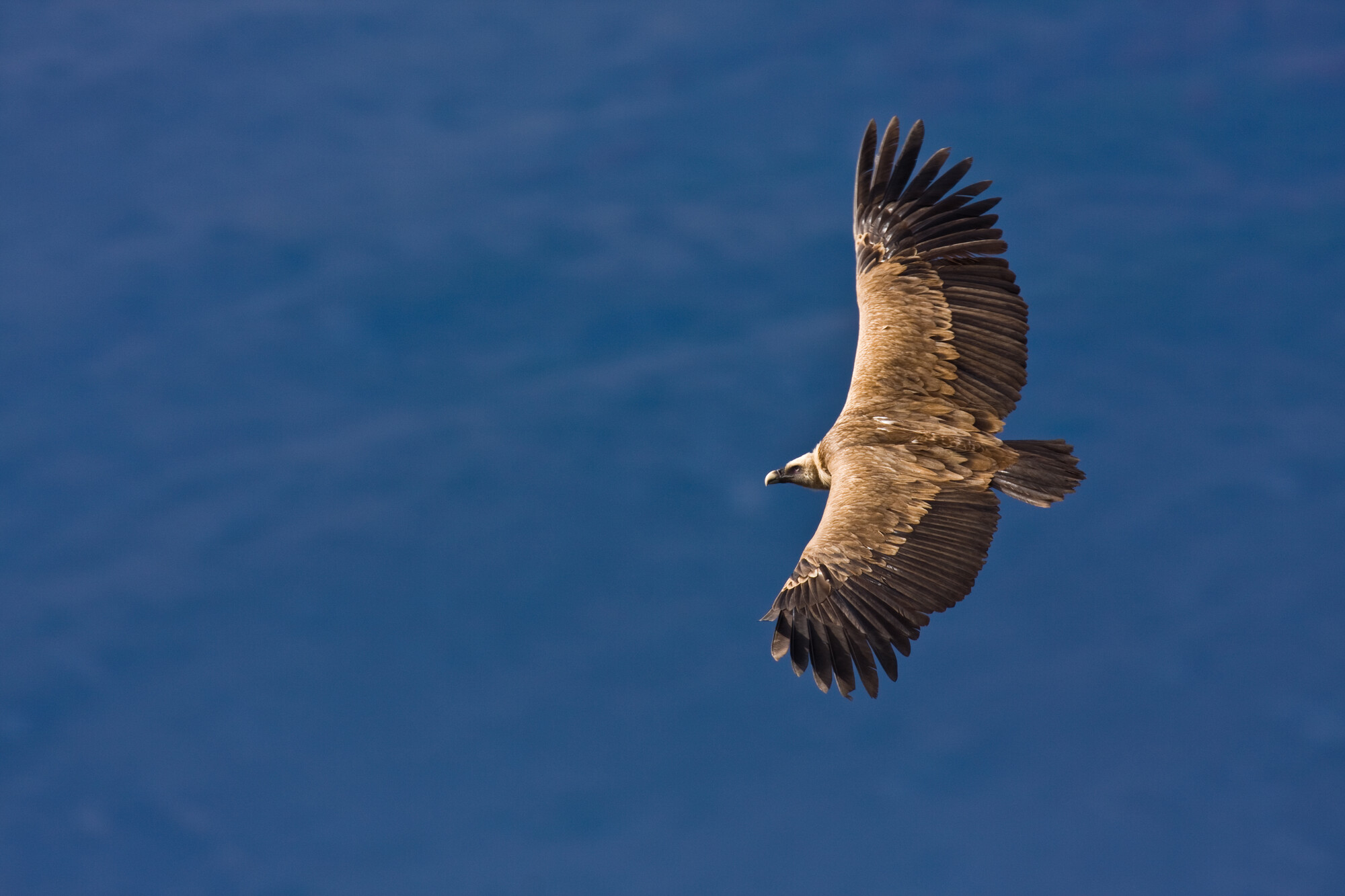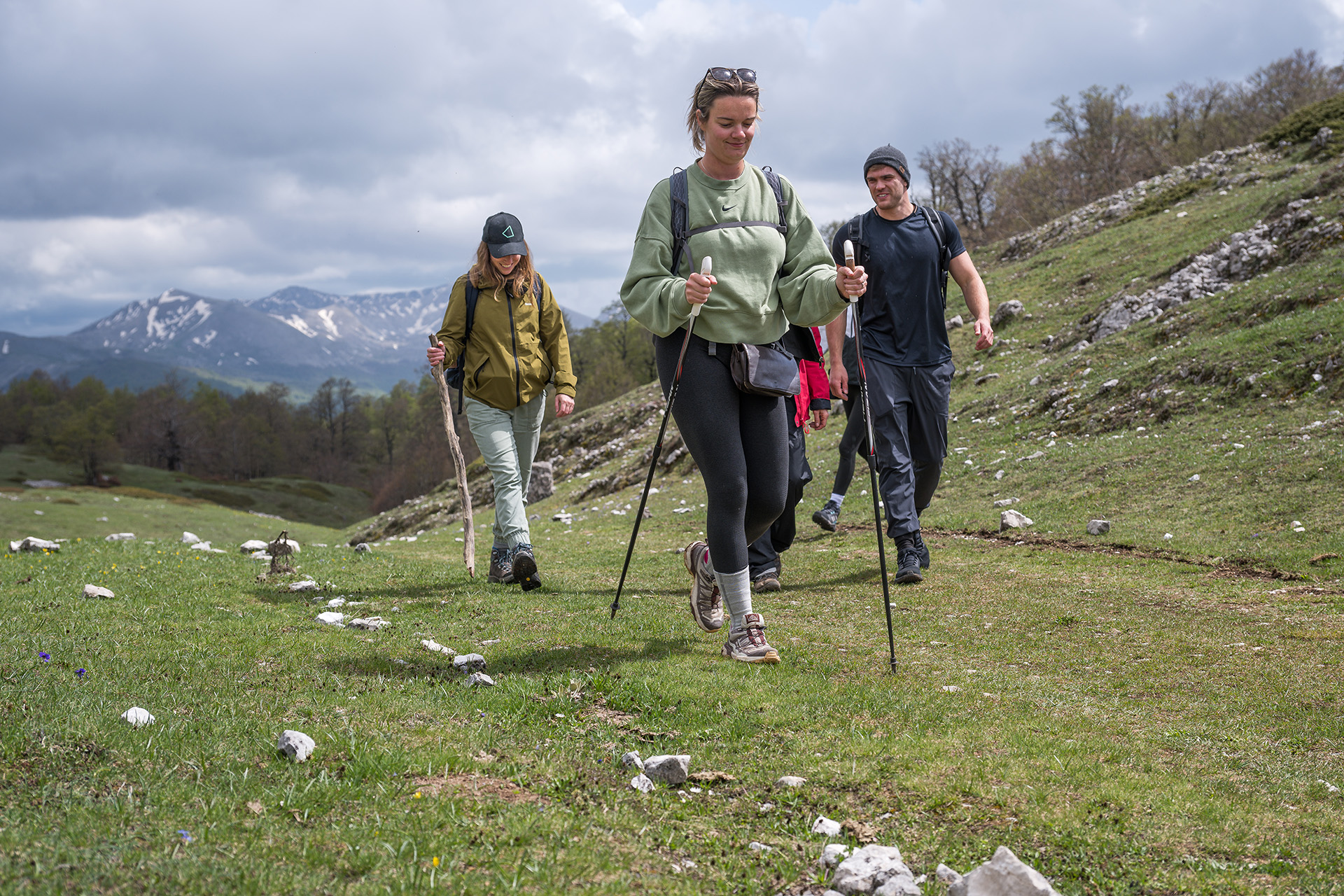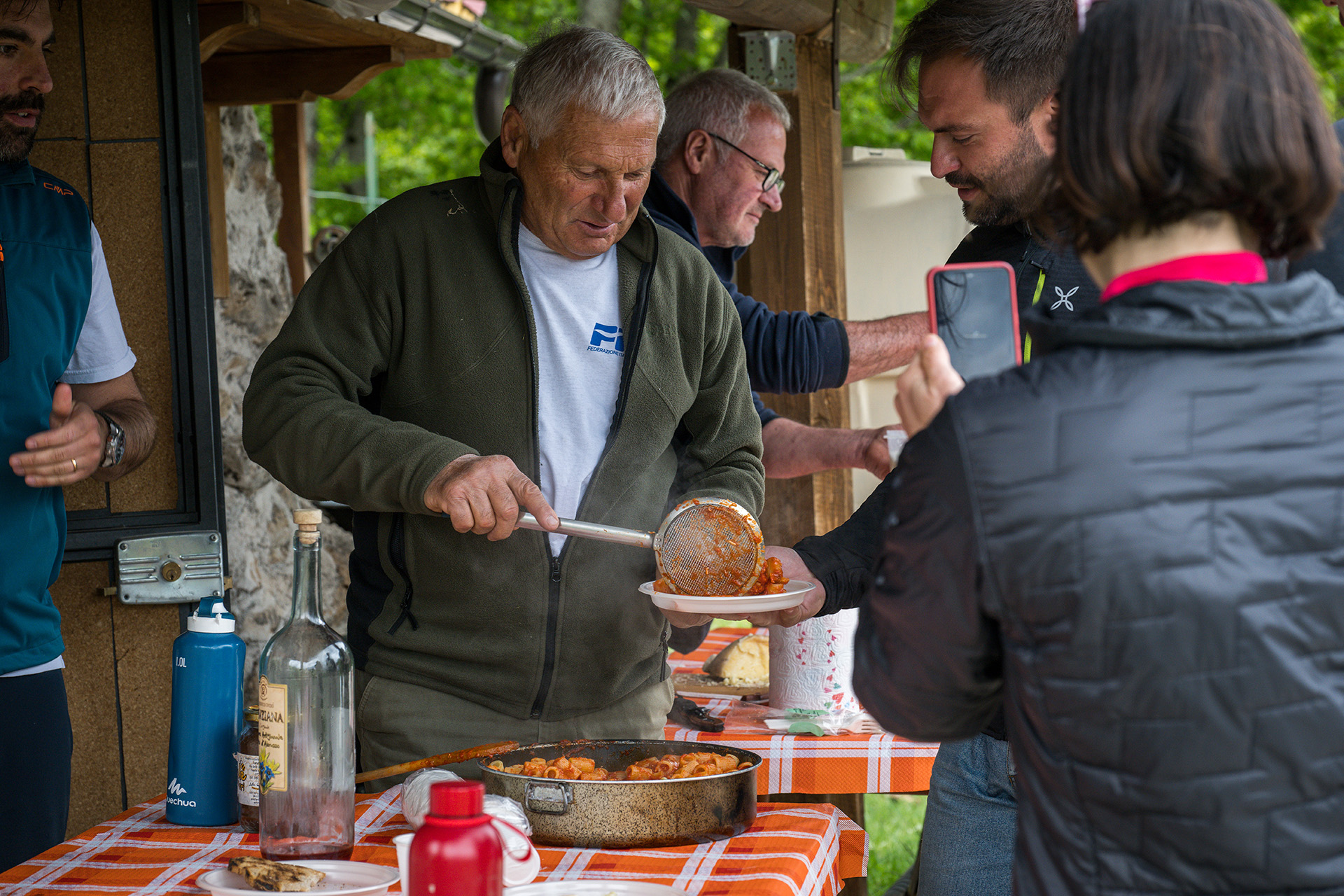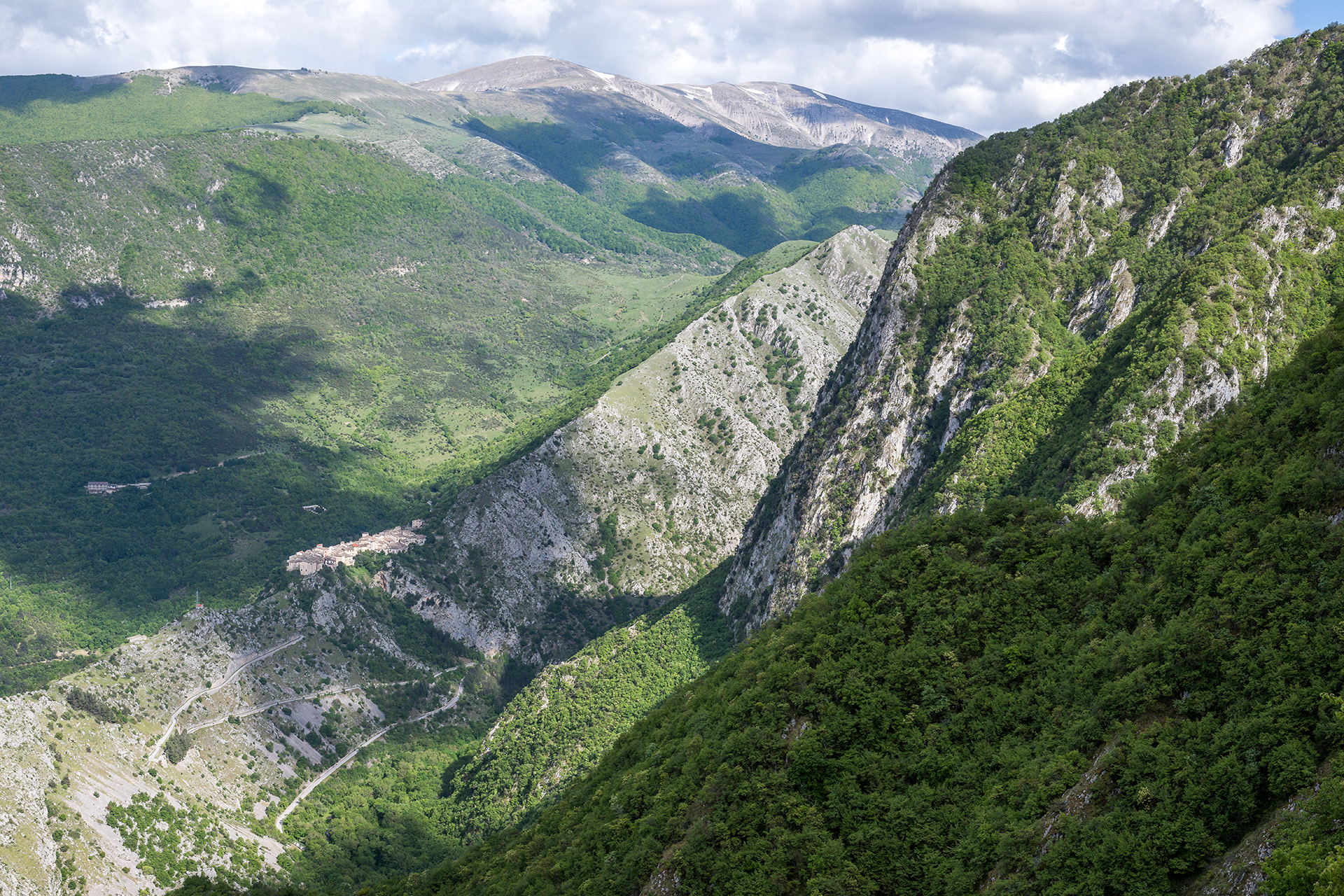Rewilding efforts mean nature-based tourism in Italy’s Central Apennine mountains is flourishing. This is good news for wildlife, businesses, and communities.
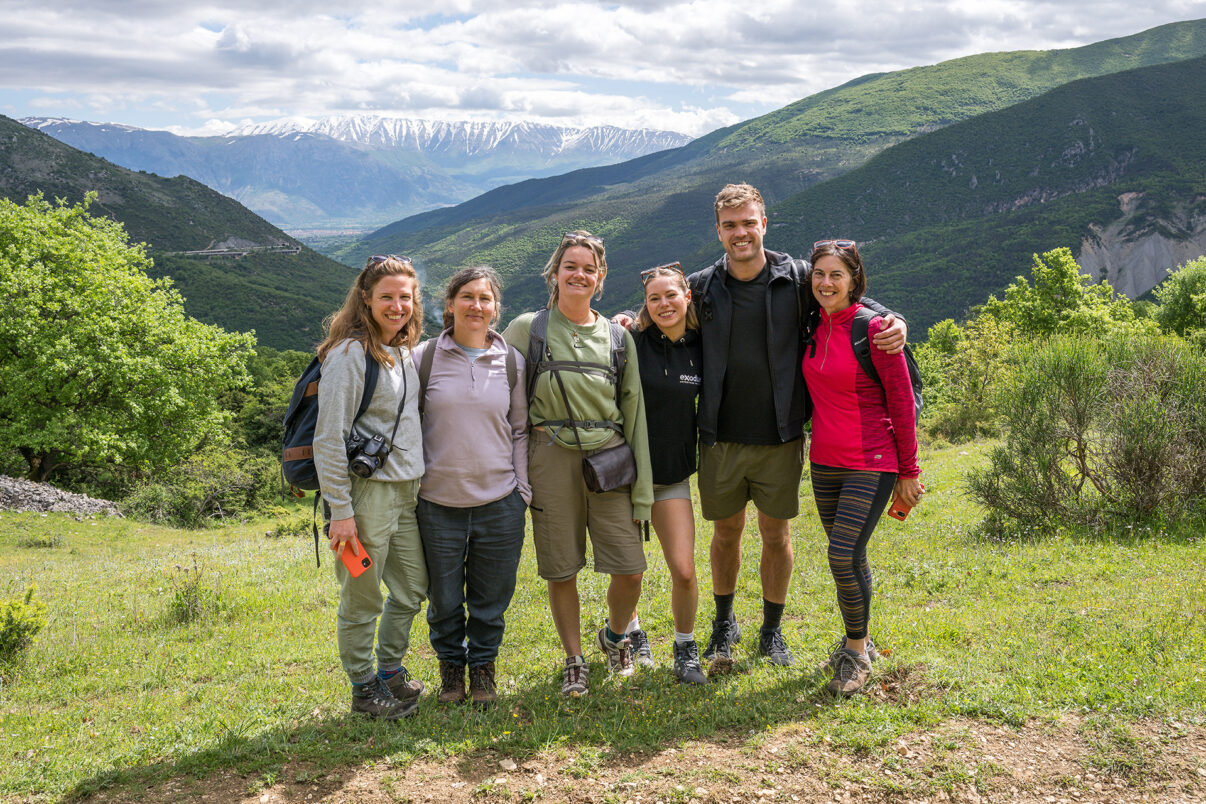
The wild heart of Italy
Those who are lucky enough to witness the soaring mountain peaks, lichen-laden beech forests, and windswept alpine plateaus of the Central Apennines soon realise why this unique part of Italy is renowned as the country’s wild heart.
In the south of the region, a two-hour drive from Rome, Abruzzo is one of Italy’s most protected regions. Dominated by three national parks, including the Parco Nazionale d’Abruzzo, Lazio e Molise, this is a wildlife-watcher’s paradise – and the only place in the world where Marsican brown bears can be seen in their natural environment. A critically endangered subspecies endemic to Abruzzo, these majestic animals are celebrated throughout local towns and villages in bright murals by local artists, information boards, and signs on cafes and restaurants.
Many visitors to the area base themselves in the picturesque mountain town of Pescasseroli, a stone’s throw from wildlife lookout spots, such as the abandoned hamlet of Gioia Vecchio, and hiking trails that wind up into the surrounding mountains. To the north, these trails lead to Rifugio di Terraegna, a lovingly restored mountain hut at an elevation of nearly 1800 metres. To the south, they offer views of Apennine chamois clambering across the high plateau of Monte Meta. Together with other iconic species, such as bears and vultures, the Apennine wolf roams freely across this landscape, with successful conservation efforts leading to a current population of around 3,000 individuals.
Tourism’s vital role
Today, the Rewilding Apennines team are supporting the growth of nature-based tourism as a means of securing a positive future for all the wildlife of the Central Apennines, including bears. With only 60 or so individuals remaining in the wild, protecting and increasing Abruzzo’s Marsican brown bear population is a priority for the Rewilding Apennines team.
Key initiatives include establishing so-called “Bear-Smart Communities” to help bears and people to thrive together, and a network of large-scale wildlife corridors, which enable bears – and a wide range of other wildlife species – to move safely between protected areas. Complemented by efforts to enhance co-existence, a vast and unique ecological network is being created, spanning over 525,000 hectares.
In a positive feedback loop, rewilding efforts in the Central Apennines are supporting nature recovery and the growth of nature-based tourism. In turn, this growth supports the comeback of bears and other wildlife, by building pride, incentivising people to want to live alongside and enhance the wild nature on their doorstep, and generating money that is funnelled back into ongoing rewilding efforts.
“Marsican brown bears have survived thanks to tourism, which has gradually grown as hunting has diminished during the twentieth century,” explains Valerio Reale, Enterprise Manager at Rewilding Apennines. “Today, the best way people can help protect the bears, wolves, and this landscape is to visit us. By choosing responsible operators, visitors can foster a deep connection with the landscape and the people committed to protecting it.”
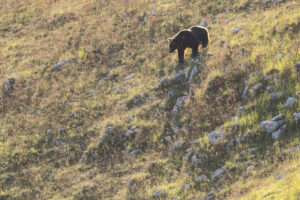
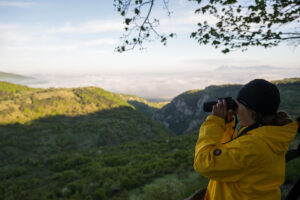
A nature-based enterprise showcase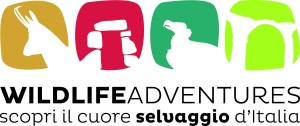
One of the highest-impact operators in the region is locally owned and run Wildlife Adventures, which has collaborated with Rewilding Apennines for several years to develop tourism products with far-reaching benefits. The evolution of the company, which now welcomes more than 2,000 visitors to the region each year, is partly thanks to a loan from Rewilding Europe Capital – Rewilding Europe’s enterprise loan facility – and the passionate entrepreneurship of its founder, Umberto Esposito.
“Our collaboration with Rewilding Europe has taught us to aim high and look beyond Italian borders,” says Umberto. “To create offerings that integrate the highest standards of customer care – and to encourage the local companies we work with to do the same.”
Wildlife Adventures donates 5% of its profits from bear-watching tours to Italian NGO Salviamo l’Orso – a partner of Rewilding Apennines working to conserve and enhance the area’s Marsican brown bear population. A percentage from other tours goes to the Bear Fund, which is managed by the Rewilding Apennines team and supports and finances actions to protect bears and promote rewilding.
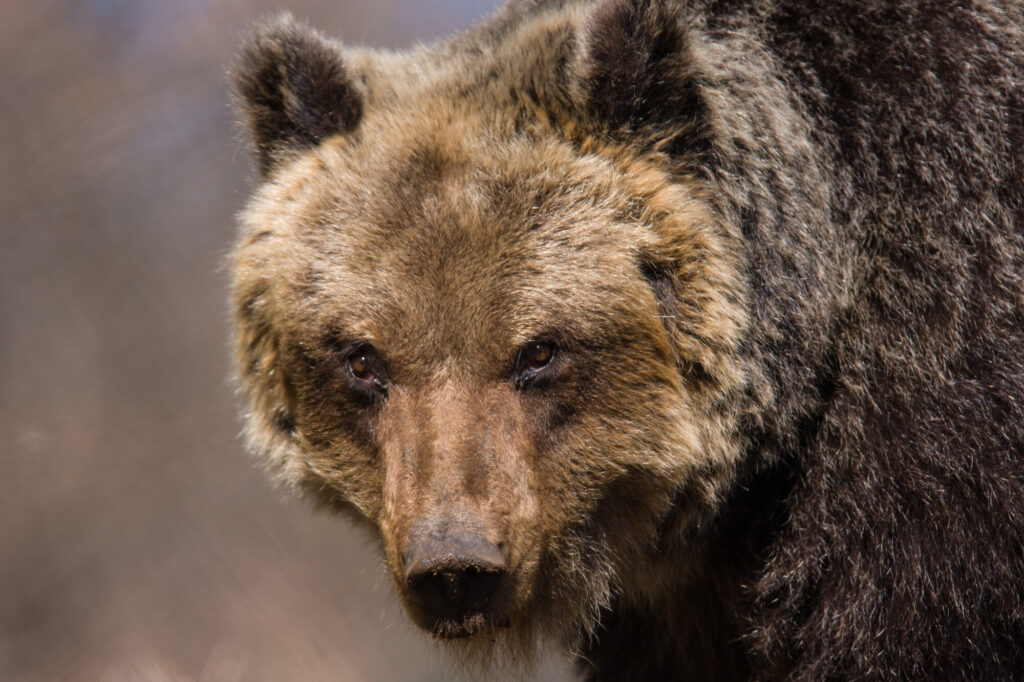
Thriving together
The growth of Wildlife Adventures is also generating benefits for people, with the company employing four local guides throughout the year, and ten more on a seasonal basis. One of the company’s guides, Filippo Castellucci, divides his time between guiding visitors and serving as an ecologist for the Rewilding Apennines team, illustrating the close connection between the rewilding mission and the tourism experience.
“The Central Apennines are my home and this is where my heart is,” says Filippo. “I’ve been away studying and working, but now I want to focus my efforts on supporting nature recovery here. I feel so lucky to have that opportunity.”
With mindful consideration for the needs of local people and landscapes, Wildlife Adventure’s trips not only contribute critical income to the efforts of the Rewilding Apennines team, but also extend the socio-economic benefits of nature-based tourism to local producers, guides, and businesses.
“Co-existence is the main focus for us because people are a fundamental part of this landscape,” explains Valerio Reale. “Through tourism, local communities can derive tangible benefits from nature recovery, enabling them to thrive together with wildlife.”
“Co-existence is the main focus for us because people are a fundamental part of this landscape”

A productive partnership
Since 2021, a partnership between Rewilding Apennines and international tour operator Exodus Adventure Travels has also helped to scale up rewilding impact in the Central Apennines. Through the company’s “Thriving Nature, Thriving People” strategy means that for every guest who travels with the company, Exodus makes a financial contribution to the rewilding of 100 square metres of land in the Central Apennines. To date, this has amounted to approximately 230,000 euros in donations.
“We take more of our customers to Italy than to any other country, so we wanted to find a way to contribute to the conservation and restoration of nature there,” explains Kasia Morgan, Exodus Adventure Travel’s Head of Sustainability. “Rewilding Apennines stood out for its high-impact work creating five wildlife corridors in the Central Apennines, which not only helps to protect the endangered Marsican brown bear, but also to restore ecosystems, support carbon removal, and ensure communities directly benefit from local conservation and rewilding efforts.”
Alongside this financial support, Exodus has also collaborated with Rewilding Europe and Wildlife Adventures to develop its “Italian Apennines: Walks & Wildlife” itinerary. These trips immerse guests in the landscape and the rewilding efforts being carried out there, and give visitors the chance to meet and chat with members of the Rewilding Apennines team. All profits from these trips go to Rewilding Apennines.
“What’s incredible about these trips is the two-way benefit welcoming international visitors to our initiative has,” explains Valerio Reale. “When visitors come and ask questions, our team, community, and local partners – such as farmers – all see how important it is to protect bears and rewild the landscape.”
An upward trajectory
Learning from these success stories and understanding the potential of rewilding tourism to amplify the socio-economic benefits of rewilding, Rewilding Europe has just launched Wilder Places, a new travel booking platform. As the site grows, visitors will be able to browse and book meaningful experiences across a growing number of Rewilding Europe’s rewilding landscapes, including the Central Apennines. This will help these landscapes become wilder and ensure local residents and businesses benefit from nature recovery.
Umberto Esposito hopes Wilder Places will support the growth of nature-based tourism in every rewilding landscape.
“Tourism is not only an opportunity, but a responsibility,” he says. “As the example of the Central Apennines shows, when it is developed in the right way, it can help both nature and people flourish together. By scaling up rewilding tourism across Europe, the positive impact it has already had here can be replicated across the continent.”
Written by Holly Tuppen, who is based in the UK and has been writing about and consulting on nature restoration, connection, and tourism for over 15 years.
Want to know more?
- Rewilding Apennines
- Wilder Places
- Watch “The Central Apennines: A Story of Co-existence” by Emmanuel Rondeau

